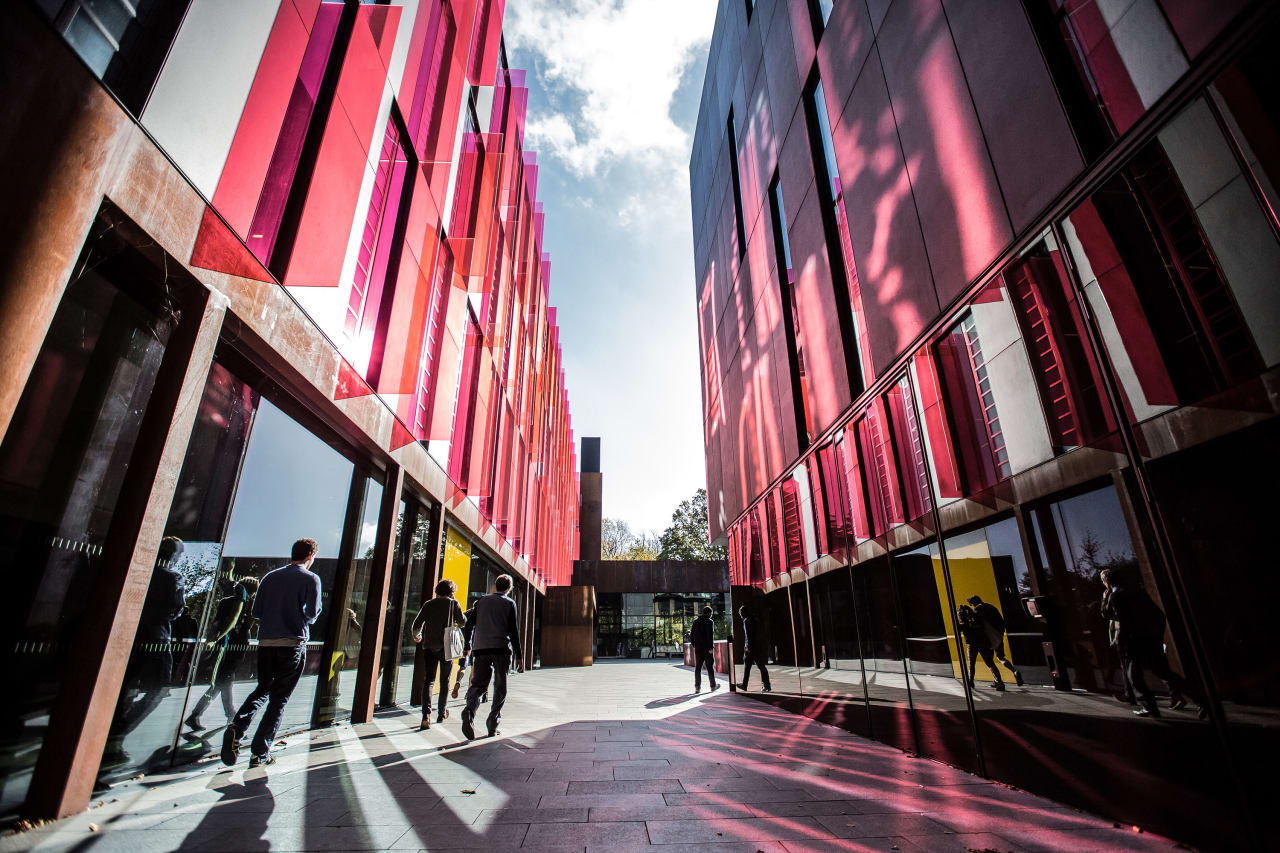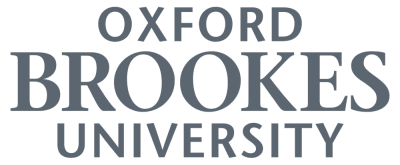
MA in Humanitarian Action and Peacebuilding
Oxford Brookes University

Key Information
Campus location
Headington, United Kingdom
Languages
English
Study format
Distance learning
Duration
30 Months
Pace
Part time
Tuition fees
GBP 4,800 / per year
Application deadline
Request Info
Earliest start date
Request Info
Scholarships
Explore scholarship opportunities to help fund your studies
Introduction
Our Humanitarian Action and Peacebuilding MA is aimed at practitioners already working in these fields, but also those working in related areas.
We designed and deliver this course jointly with the United Nations Institute for Training and Research (UNITAR). This gives you access to resources and support from both institutions online and in the field through UN missions. We also use the knowledge and expertise of the Centre for Development and Emergency Practice (CENDEP).
A flexible and user-friendly online learning environment enables you to learn from your workplace. During the course you will:
- investigate cutting-edge issues in the field
- propose innovative tools
- reflect on current field practices
- broaden your perceptions
- develop and refine the hard and soft skills needed to work effectively.
You will have support from a team of academic experts and top-ranked practitioners. And field experts for specific topics.
This course is also relevant for practitioners working in other fields interested in exploring opportunities in conflict transformation.
Gallery
Admissions
Scholarships and Funding
Curriculum
Learning and assessment
This course has been designed to be studied by students working in the field.
100% Online delivery
The programme is 100% online conducted via webinars, tutorials, discussions and group work. The workload per module is estimated to be 200 hours per module divided into four types of activities.
Around 25 % of your time will be spent in staff-led activities such as webinars, tutorials and discussions, 25% of your time will be spent in self-led activities such as readings or independent exercises, another 25 % will be used in preparing your assignments and finally the remaining quarter of your workload will be directly derived from or based on professional past of current practices.
Part-time
This part-time programme is usually studied over 30 months. Being part-time, allows you to remain in the field working whilst completing your studies. However, you can extend your studies if needed and take up to 5 years to complete it. Or finish it in 24 months if you can take time off work to complete the course.
Study modules
Compulsory modules
- From Conflict Sensitivity to Conflict Transformation (20 credits)
This module equips you with a sound understanding of the complexity of conflicts, including conceptual frameworks and theoretical debates related to humanitarian action and peacebuilding in complex environments. It provides you with the analytical tools to understand the contexts of conflict and to assess the challenges faced as practitioners. - Culture-Sensitivity in Conflict and Post-Conflict Settings (20 credits)
It is agreed that emergencies, rehabilitation and peacebuilding programmes need to be embedded in local cultures. How can we be truly 'culture sensitive'? If this principle is clear, the practicalities remain confusing and difficult to put into operation. Culture sensitivity requires knowledge, skills and competencies but also an attitude towards others. This module allows you to understand and deal with core issues related to culture, communication, trust-building and culture sensitivity. You also explore issues related to cultural dimensions such as gender, displacement and identity. - Leadership, Team and Self-management in Conflict Settings (20 credits)
You will critically examine some of the personal skills (or 'soft skills') needed by professionals working in humanitarian action and peacebuilding. In particular, the module focuses on leadership skills, team management and self-management skills. The session on self-management is more specifically centred on stress and stress management and introduces you to a number of techniques that can be applied for self-support, but also to support peers and members of communities in conflict-affected countries. - Protection of Civilians in Conflict and Post-conflict Settings (20 credits)
This module reviews the critical issues related to the protection of civilians in conflict and post-conflict contexts by exploring different conceptual and operational frameworks. In its second part, the module focuses on the planning and implementation of protection activities and offers you the opportunity to apply different tools to concrete situations. The module concludes with a discussion on community-based protection strategies, including unarmed civilian protection. - Post-Conflict Stabilisation and Recovery (20 credits)
This module reviews the critical issues related to the protection of civilians in conflict and post-conflict contexts by exploring different conceptual and operational frameworks. In its second part, the module focuses on the planning and implementation of protection activities and offers you the opportunity to apply different tools to concrete situations. The module concludes with a discussion on community-based protection strategies, including unarmed civilian protection. - Humanitarian and Peacebuilding Programmes in Urban Conflicts (20 credits)
Focusing on urban spaces becomes increasingly important for the efficiency of humanitarian actions, but presents new challenges as humanitarian and development traditions are usually focused on 'open spaces' and rural environments. In urban conflicts, all lines are blurred and programming will need to take that into account. Conflicts particularly have an impact on the way people produce, understand and inhabit spaces and places. Rebuilding some social links and establishing communities in locations will become one of the key elements in conflict transformation and humanitarian programmes. Through action research methods, issues related to urban settings and specificities of humanitarian projects can be investigated. - Conflict and Post-conflict Research: Methods and Ethics (10 credits)
Final project
Compulsory modules
- Practice-based Study/ Dissertation (50 credits)
The dissertation is a large piece of work that enables you to explore an issue or theme in depth. The dissertation is a self-driven work, where the supervisor plays the role of advisor, supporter and questioner.
Optional modules
- Independent Study (20 credits)
Learning and teaching
This programme is based on self-led learning and strong interactive teaching tools, as much on peer-to-peer as on tutors’ mentoring.
You’ll learn from the workplace, using practical cases either through action research or through case studies; particularly in 'learning by doing', 'self-reflection' and 'action testing of theories'.
The course merges practice-based knowledge from field practitioners with research outputs from practice-oriented scholars. We use studies and theories from:
- social sciences
- peace and conflict studies
- humanities
- political sciences
- law
- urban planning
- architecture.
UNITAR and Brookes have considerable experience in delivering humanitarian education to humanitarian actors in field operations. Insight from previous education programmes in similar settings shows that learners are often under constant stress, working in harsh conditions and with limited access to the internet.
As a result, a variety of learning tools are applied within each module.
Program Tuition Fee
Career Opportunities
This course is ideal for a career in the field of humanitarian action, conflict transformation or related fields, such as:
- civil servants or diplomats in charge of humanitarian affairs
- academics teaching humanitarian practices
- journalists seeking a better understanding of humanitarian issues
- military personnel ready to be deployed in a field of operation where humanitarian actions are taking place.